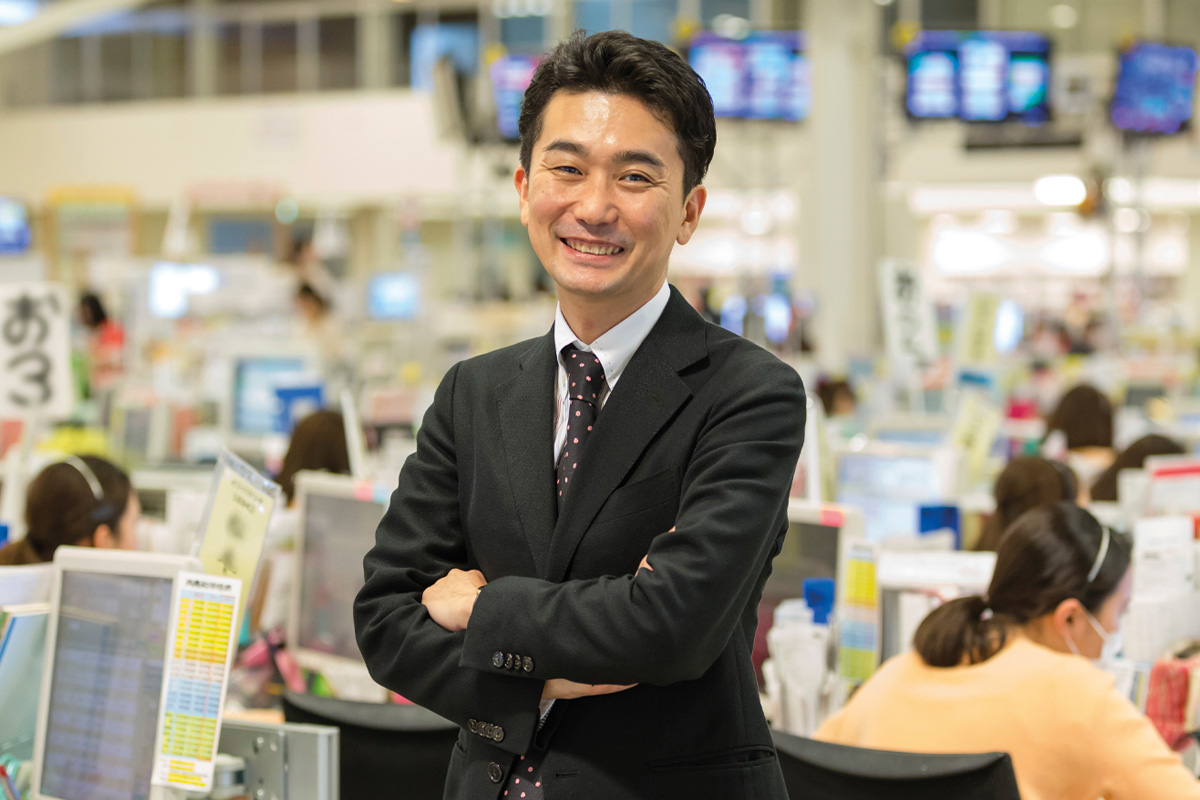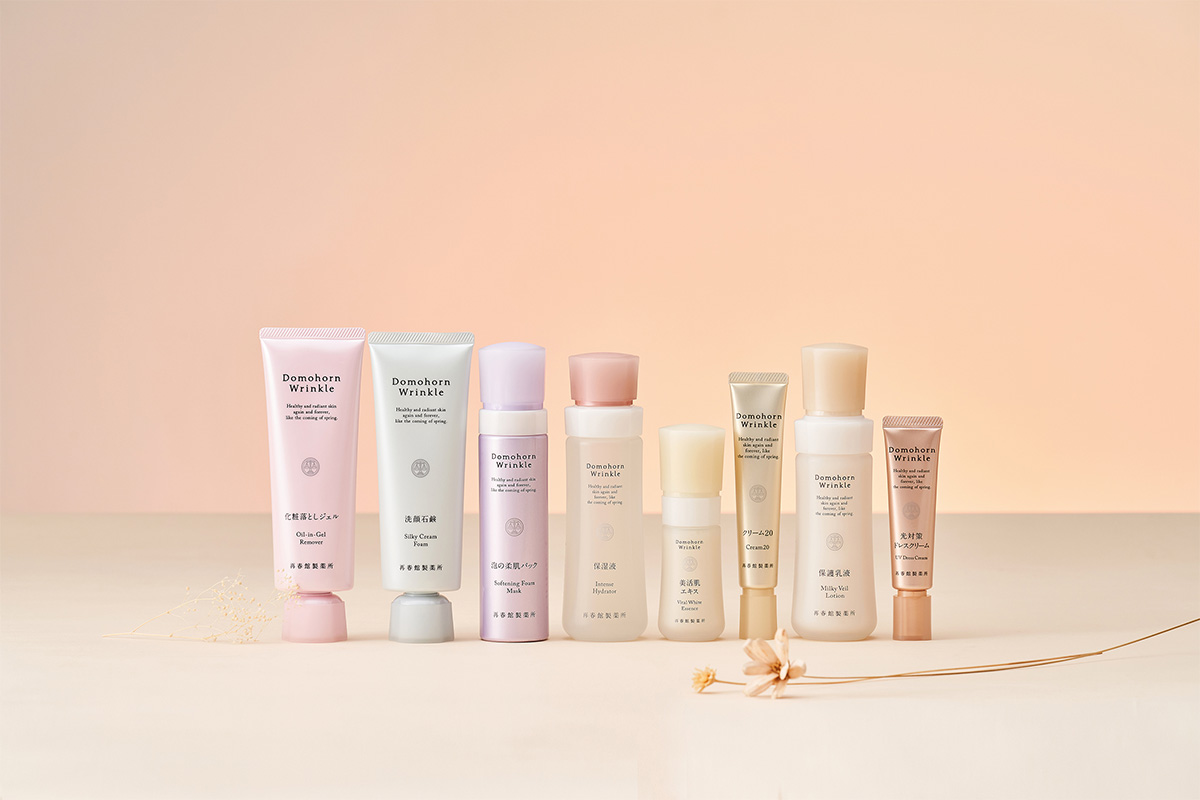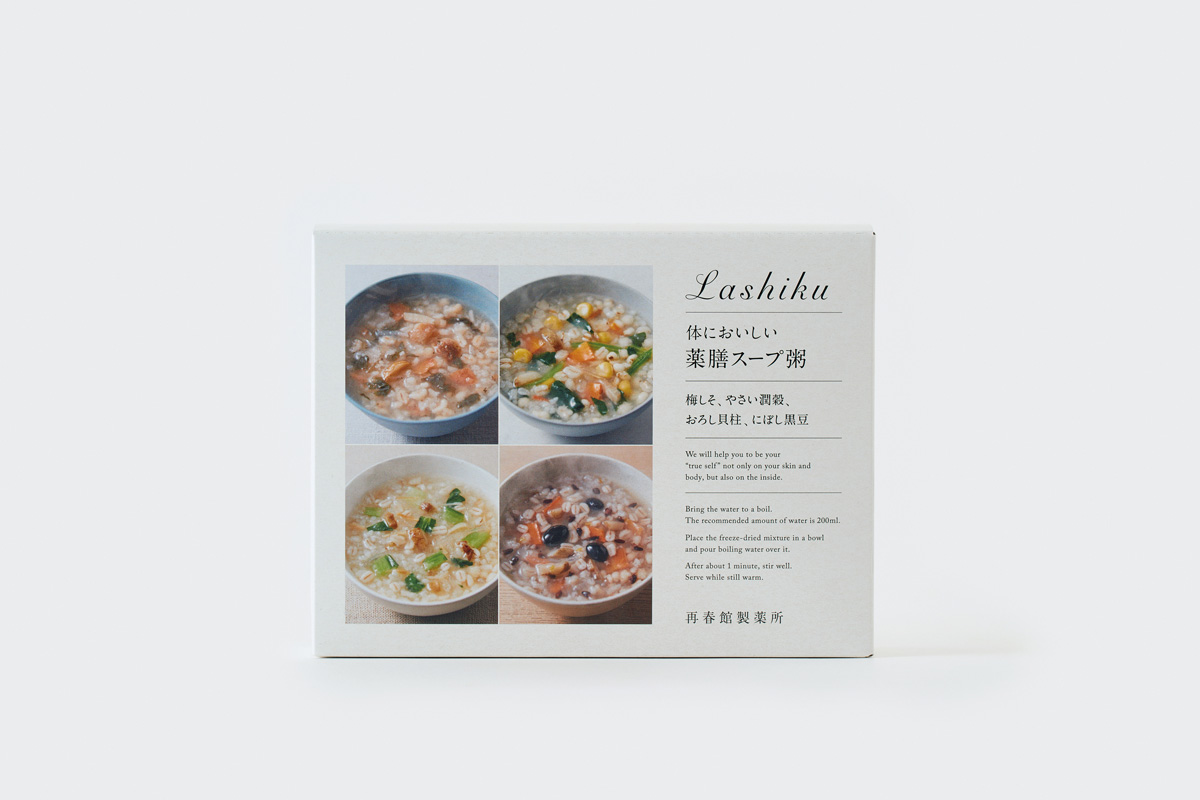Discover how Japanese Cosmetics Firm, a leading Japanese cosmetics company, navigates challenges in the global market, maintains quality standards, and plans for future growth amidst demographic shifts and changing consumer demands.

Over the last 25-30 years, Japan has seen the rise of regional competitors from countries like Korea, China, and Taiwan, who have replicated the Japanese model of success but done so at a cheaper labor cost, thus pushing Japan out of certain mass markets. Yet, despite this, we still see many Japanese firms are still leaders when it comes to niche products and fields such as cosmetics. How have Japanese firms maintained this leadership despite the steep price competition?
Compared to other markets, I think that Japan was slow to enter overseas business scenarios. When I asked myself the reasons behind the delay in entering the global business arena, I think it came down to the fact that firms were able to sustain their business purely off of the domestic market. Seeing as we did have a population of over 120 million people and we were building off of post-war economic growth, I think many saw the potential of the domestic market as limitless. It accelerated growth for many businesses, which in turn led many to not necessarily needing to look overseas. Unfortunately, however, the Galapagos syndrome sets in, and some companies have struggled because they are so internally focused. I think this is the key reason why there aren’t many global companies that are Japan-based. We continue to focus on our unique value in the domestic market, and as a result, we are expanding overseas while maintaining the same level of importance as adding another prefecture in Japan.
Now that Japanese firms are moving abroad, what would you say are the advantages that Japanese firms have over similar competitors internationally?
I think the strength of Japanese firms comes from how they focused their energies on their domestic businesses, which in turn has enabled them to really grow and forge their quality. This is due to the fact that the quality standards of Japanese customers are very strict, and there are many demands. This empowered Japanese companies to strengthen their skill set and deliver high levels of quality.
When discussing quality, what comes to mind is when I visited a mineral water factory in France in the 1990s. In many cases, mineral water is simply collected from melted water from the mountains and bottled. However, what is exported to Japan undergoes extremely strict standards. Even mineral water must go through specific filtration processes. To be honest, I remember hearing at the time that this unique method of processing is something that can only be realized in Japan.
Based on these factors, I believe that we as a company have really been able to be blessed by a strong Japanese customer base; a customer base that has pushed us to maintain such high-quality standards. We manufacture cosmetics based on the philosophy that "What you put on your skin is the same as what you eat," and we carry out this philosophy from the selection of raw materials to manufacturing. We have established our own standards for manufacturing based on the standards of pharmaceutical manufacturing management and quality control. We manufacture cosmetics in a factory designed to meet the standards of environments capable of general operations such as surgery. Effectiveness and safety tests are also conducted to the same high standards.
We want to deliver freshly made products that we can be proud of, and we want customers to be fully aware of how those products are made. All of our products use raw materials that are sourced from places where the origin is known, allowing us to take full responsibility. This deep sense of quality assurance with our customers is really our duty, and we feel it necessary to provide them with the highest quality products we can produce.

Headquarters and factory in Kumamoto prefecture
You mentioned the high quality as one of the reasons why Japanese products have been able to maintain this leadership, but given Japan’s demographic situation, this quality is going to become difficult to maintain with the aging and shrinking population. It is estimated that by 2050 the population will drop under 100 million with one in three people over the age of 65, meaning that Japan is facing a labor crisis and an issue of technical inheritance, but then there is also a shrinking domestic market to sell products to. What are some of the challenges this demographic shift has presented to your firm and how have you been reacting to them? To what extent must firms like yours look overseas to ensure long-term business success?
While we do not exclusively focus on the "100-year life era lifespan," I believe that in the cosmetics industry, companies need to consider this market, something we’ve really tried to provide with products such as our Domohorn Wrinkle. Our goal here is to support each customer indefinitely while addressing various concerns that come with age, so that they can continue to look forward to tomorrow as they grow older. By doing so, we aim to contribute to improving the quality of life for each individual customer. We aim to expand our efforts beyond simply addressing physical concerns to contributing to a mentally healthy and vibrant lifestyle. Basically, we want to become a company that provides services for the body and mind. What this means is diversifying our business to include services such as retreats and trips where customers can refresh themselves and set their minds at ease. Another approach might be flower deliveries, for example, but honestly, it could encompass a plethora of different types of services designed to add value to the cosmetics that we already provide.
Of course, we are also putting a lot of emphasis on our overseas business, and our success abroad is going to be key to surviving the industry and growing the company as a whole. We want to actively and proactively challenge ourselves to expand our overseas business. The spirit of being able to deliver the type of services we are looking at here domestically and overseas is core to the company’s approach. Essentially, we want to be known as a company that was born in Japan but brings that Japanese spirit to the rest of the world.
In many interviews with key players in the industry, they mentioned that in order to unlock the international market there is a need to partner with local companies in order to better understand the needs of a locality. We know that your firm sells your products in over 20 countries worldwide, so with that in mind can you tell us the role that partnerships play in your business model? Are you currently looking for any new partnerships or collaborations in overseas markets?
We think about domestic and overseas differently. Domestically we have maintained almost the exact same model for our entire existence, and that model basically boils down to directly supplying our customers with products. However, we are starting to see that if we want to contribute to enriching the lifestyles of our customers, relying solely on our own capabilities has its limitations. The understanding we have come to is that by collaborating with companies that are familiar with that country or region, we can actually move more quickly and effectively. However, we do have a global division here and there are different steps we can take in order to strengthen our global business. I think that it comes down to local marketing, which is something we are doing, as well as cutting down logistical costs.
You talked about your wish to be more global, and we know that beginning with Hong Kong you are now exporting your products to 49 countries so far including Taiwan and Thailand. Where is next? What countries or regions would you like to continue your international expansion in?
Our global strategy is really building towards a JPY 10 billion business, and that comes about from exporting to places we have a presence in and strengthening our marketing capacity further. We are conducting test marketing and from there we can ascertain and measure where the greatest growth and demand is. This information will allow our company to pivot and move based on the growth and demand in various markets. Risk management in this sense is what will help us grow as a healthy company. The achievement of a 10 billion yen overseas business helps us diversify risks both domestically and internationally, assisting in our growth as a healthy company.
This is inspired by the growth strategy of the German furniture manufacturer Wilkhahn. For the past 20 years, the company has not relied solely on the domestic market in Germany but has also distributed sales proportions to Europe and other regions of the world, thus fostering growth. Additionally, we resonate with the same philosophy of continuously refining and updating a single product. Therefore, we have adopted the Wilkhahn Modus chair for all employees working in our headquarters and call center. We implement such initiatives with the intention of providing a comfortable environment for our employees to work in, considering they spend a significant amount of time in the company.

Domohorn Wrinkle products, which mark their 50th anniversary
Chinese medicine is considered good for some milder illnesses such as colds. You provide your products as skincare through many soaps and creams, and also some products such as medicinal baths and health foods. Which of your products have been the most successful and which do you think has the most growth potential in the coming years? Are there any other types of products you are developing in order to further diversify your offerings to clients?
Our best-selling products have been our lineup of Domohorn Wrinkle. Actually, this year will mark the 50th anniversary, and we want to continue to put effort into strengthening the product so that 100 years is achievable. Despite having a 50-year history, the product continually evolves by integrating traditional Chinese medicine concepts with the latest scientific research, undergoing renewal to enhance functionality. These improvements are done by utilizing the latest information including research and new active ingredients; we are constantly improving in order to deliver the best quality. When it comes to the new products, as I mentioned earlier, we are looking into how we can further contribute to the process of aging gracefully. The products of the 'Lashiku' brand, which focuses on biological rhythms, are designed to help customers live in sync with their rhythms and lead a daily life that maximizes bodily performance. For example, products that aid in falling asleep at the appropriate time or support intestinal activity from the morning are offered, not only addressing skin concerns such as Domohorn Wrinkle but also supporting overall lifestyle. Saishunkan Pharmaceutical exists for this purpose.
When we interviewed the president of PRIMIX Corporation, he explained to us that due to the nature of the patient’s skin, major Japanese cosmetics companies have over 3,000 types of moisturizers. This is because of Asian skin’s unique characteristics including slower aging due to a thicker dermis, but also the ability to scar more easily due to a thinner stratum corneum. How do you ensure that your products are able to fit different types of skin all around the world?
We firmly believe that our product, Domohorn Wrinkle, is truly unique and unparalleled in the world. With confidence, we plan to expand this experience to customers in Asian countries. When developing our lineup, we considered differences in climate and how they affect needs, but fundamentally, it doesn't seem realistic to adhere to the idea that we are ultimately trying to adapt to every type of skin individually, considering that we are humans. Rather than targeting averages or medians, we focus on identifying the root causes of skin concerns and strive to maximize the functionality to address these concerns effectively. This approach guides our product development process.
Domohorn Wrinkle is your flagship product that you’ve been working on for the past 50 years. In particular, you market Domohorn Wrinkle as bringing out the fundamental power of skin through eight products. Can you explain to us more in-depth about the Domohorn Wrinkle brand, the benefits, and why customers should use each of the eight products?
First of all, there is no specific reason why we’ve made it eight. We aren’t stuck on the number eight but rather, after years of research, we've just happened to arrive at this point. We’ve been working in the anti-aging market for a while now, and originally it was something we developed to support concerns associated with aging, and that is of course through reducing different effects such as wrinkles and blemishes. It just so happens that this came about through the usage of eight products.
I think that we are constantly trying to create a product that provides a solution to the needs of our customers, in particular regarding wrinkles and spots. We are not just a cosmetics company; we are a pharmaceutical company that created cosmetics inspired by traditional Chinese medicine. We believe that in terms of the anti-aging market, we might have been doing what we do before big players.
Is it only for women?
As we focus on addressing the root causes of skin concerns, our products can be used by individuals of any age or gender. I have been using our products myself, but it seems that there is an increasing demand for anti-aging products for men. From now on, we plan to expand our marketing efforts to target men as well. In fact, out of our current customers of 200,000 people, approximately 3,000 are men.

Lashiku brand ‘Freeze-dried Rice Porridge’ set
Imagine that we come back in four years and have this interview all over again. What goals or dreams do you hope to achieve by the time we come back for that new interview?
I mentioned a goal earlier to become a JPY 10 billion company in overseas business, and I hope that in four years, we will be able to at least reach JPY 5 billion. We want to become a company that clients believe is indispensable, continuing to grow and evolve. Personally, I not only aim for sales targets but also want to create an environment that is more vibrant and enjoyable for the employees here so that they can further enjoy their time with us.
0 COMMENTS